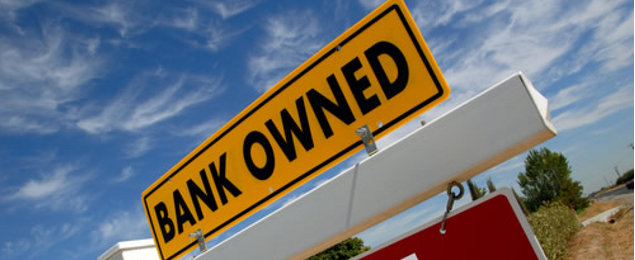Find foreclosed homes for sale up to 60% below market value on our foreclosure listings
Find foreclosed homes for sale up to 60% below market value on our foreclosure listings

When looking for cheap houses, many investors and potential home buyers turn to foreclosures, which are often sold well below market value. The first place that most people go to when looking for foreclosures is a foreclosure listings service, which provides detailed information to help those considering buying a foreclosure find a list of homes currently on the market. Others look for upcoming real estate auctions when searching for amazing deals on a bank owned home. When it comes to finding listed foreclosures, most investors and homebuyers know where to look as well as how to buy bank foreclosures. On the other hand, most people are unsure of how to buy unlisted foreclosures - or if it is even possible.
The specific foreclosure process varies from state to state; however, in general when a homeowner fails to make monthly mortgage payments for an extended period of time they receive a Notice of Default. This notice essentially provides the homeowner with information on how much they owe on the home and a deadline for paying off the owed amount. If the debt is not paid (or the property is not sold in the pre-foreclosure process or at auction) then the home becomes the property of the lender. Homes that have been foreclosed upon and are now the property of the lender are known as bank foreclosure homes.
When a home is foreclosed upon, it becomes the property of the lender. Some lenders handle their foreclosures in house, but most hire a realty company to sell the property for them. In order to find out about the bank's foreclosure properties, you can call the bank and ask to speak with their REO department. This department will inform you of how the bank sells its foreclosure properties and will be able to connect you with the realtor, agent or real estate broker associated with the property of interest.
After the homeowner obtains a Notice of Default, they have a certain period of time that they are allotted to either come up with the unpaid debt or sell the home. During this pre-foreclosure process, you can often buy the home directly from the seller. If the home is worth less than the owed debt, the lender may allow the homeowner to sell the home for less than the amount owed on the loan (which is known as a short sale), if agreed upon during the foreclosure negotiation process.
When a bank has a foreclosure inventory, they sell the properties at auction and/or hire a realty company to list and market these properties for them. More often than not, there will be multiple offers on banked owned homes, which is why most lenders hire a realty company to handle the process. If you are interested in a foreclosure property, the realtor associated with the property can provide essential property details and offer assistance, including helping you to learn more about how to buy a foreclosure from a lender.
There is no difference between bank foreclosures and REO homes. Both types of properties have gone through the foreclosure process and are now owned by the lender. Therefore, both bank owned homes and REO properties are the exact same thing and just refers to a home that is now the property of the bank.
In conclusion, you can typically find homes that are in the pre-foreclosure process or that have completed the foreclosure process and are now owned by the bank for below market value. Therefore, many potential homebuyers and investors typically look for these discounted properties. Due to the high demand for these discounted homes, there are often multiple offers on a single property.
